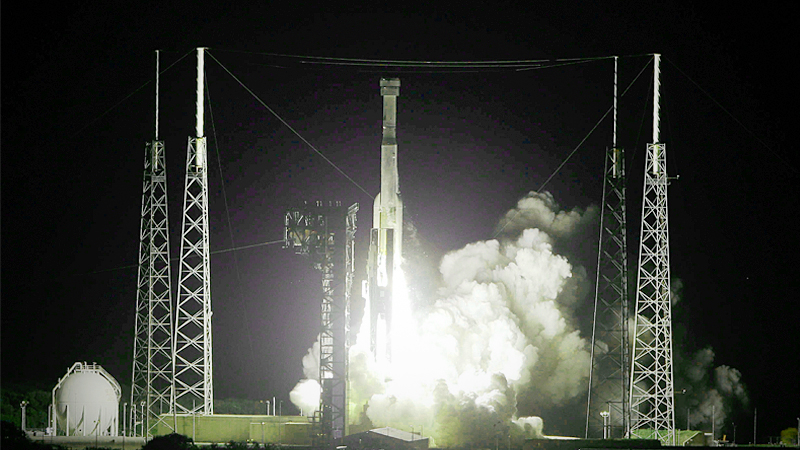Boeing capsule won't reach space station in NASA setback

Boeing Co.'s unmanned CST-100 Starliner spacecraft failed to reach the International Space Station on its debut flight, dealing a new blow to the crisis-ridden aerospace giant and adding uncertainty to NASA's plan to ferry U.S. astronauts on American spacecraft.
About 50 minutes after liftoff Friday, the Starliner was out of position to begin its orbital insertion burn, the last boost into an orbit so it could dock at the space station.
Because of that anomaly, "the spacecraft burned more fuel than anticipated to maintain precise control. This precluded @Space_Station rendezvous," Jim Bridenstine, head of the National Aeronautics and Space Administration, said in a tweet.
The mishap jeopardizes U.S. plans for human flights as soon as next year by Boeing, which was hired to ferry astronauts to the ISS as part of NASA's commercial crew program along with Elon Musk's Space Exploration Technologies Corp. Boeing's failure also deepened a sense of crisis around the company, which is already reeling from a nine-month grounding of the 737 Max after two deadly crashes.
Boeing's stock fell less than 1% to $331.43 at 9:57 a.m. in New York. The stock rose 3.4% this year through Thursday while the S&P 500 advanced 28%.
The Starliner is expected to return to Earth for a landing at White Sands, New Mexico, on Sunday morning, NASA and Boeing officials said at a news conference. The anomaly was the result of an incorrect timer prompting the capsule to make adjustments as though it was on the correct course, burning too much fuel. Had astronauts been on board, they would have been able to correct the problem, authorities said.
The capsule took off aboard a United Launch Alliance Atlas V rocket at 6:36 a.m. Friday near Cape Canaveral, Florida, Boeing said. The capsule, with no crew on board, separated and began flight on its own about 15 minutes later.
Starliner had been scheduled to rendezvous with the ISS early Saturday.
The Starliner test flight is the second mission to the space station for NASA's commercial crew program, which is designed to end U.S. reliance on purchasing seats aboard Russia's Soyuz spacecraft, which have been the sole crew transport since the Space Shuttle was retired in 2011.
SpaceX conducted a demonstration flight of its Crew Dragon capsule to the ISS in March, also with no one aboard. Musk's company and Boeing expect to fly astronauts for the first time next year.
NASA in 2014 awarded SpaceX and Boeing combined contracts valued at as much as $6.8 billion to fly U.S. astronauts to the ISS. The agency chose two companies to assure safe, reliable and cost-effective access to space while avoiding the risks giving one provider a monopoly.
The space agency has declined to set dates on manned missions, pending the outcome of the Boeing test flight. The agency and SpaceX plan to perform an in-flight abort test of SpaceX's Crew Dragon on Jan. 11 from Florida.
